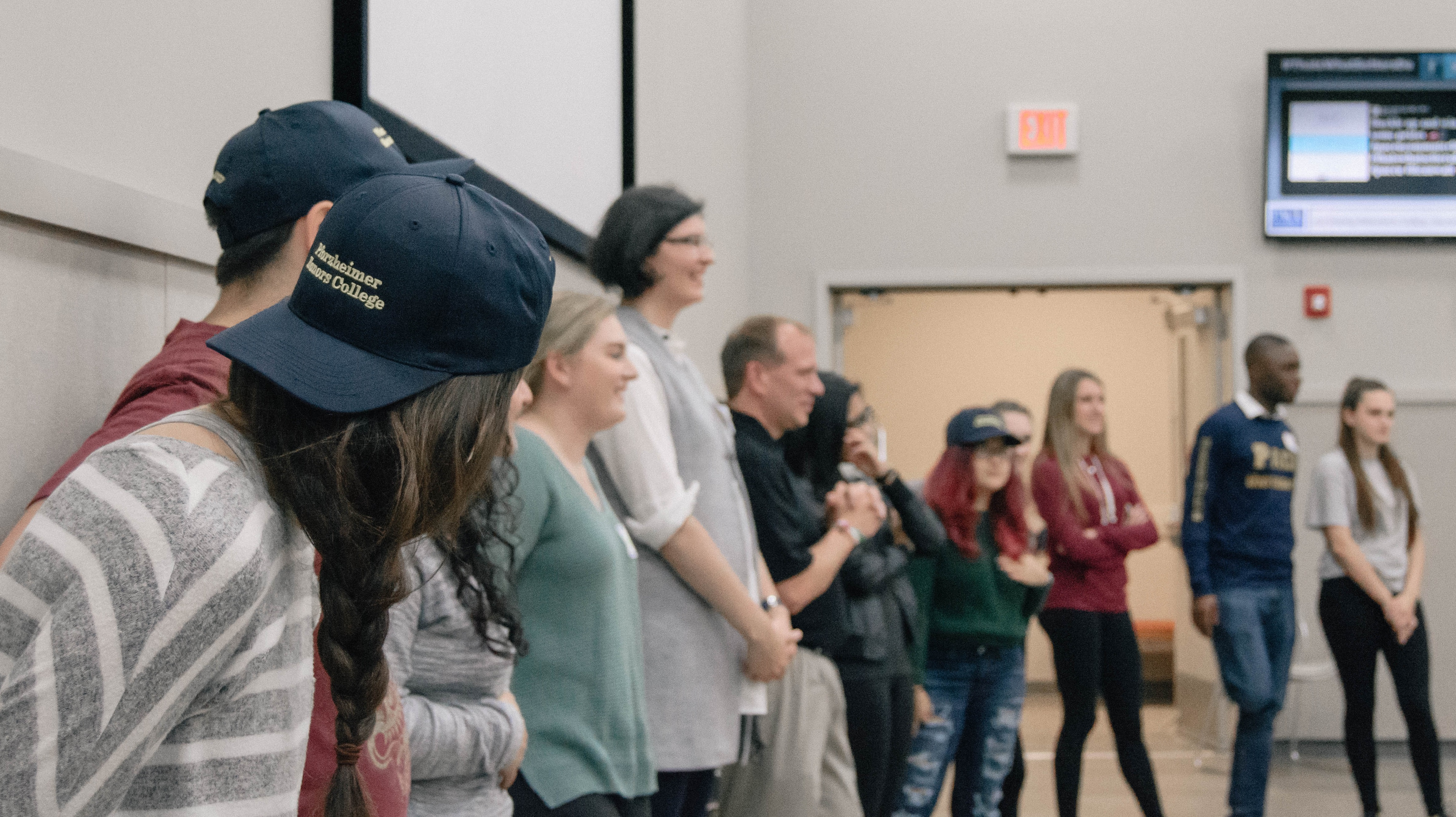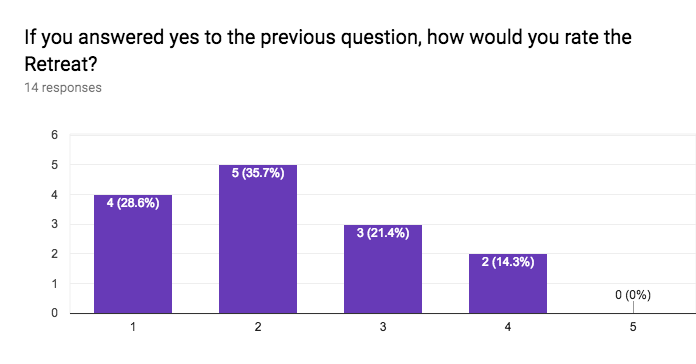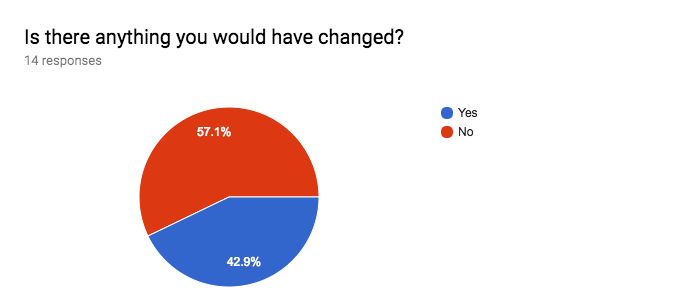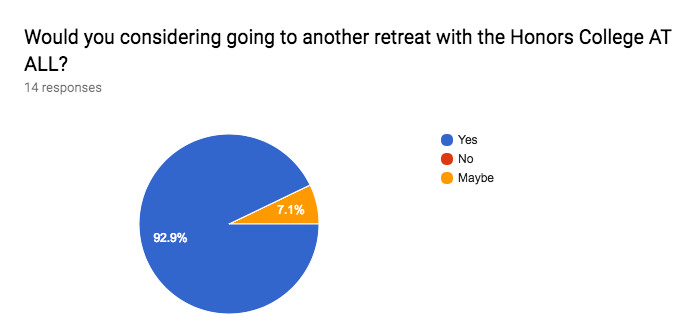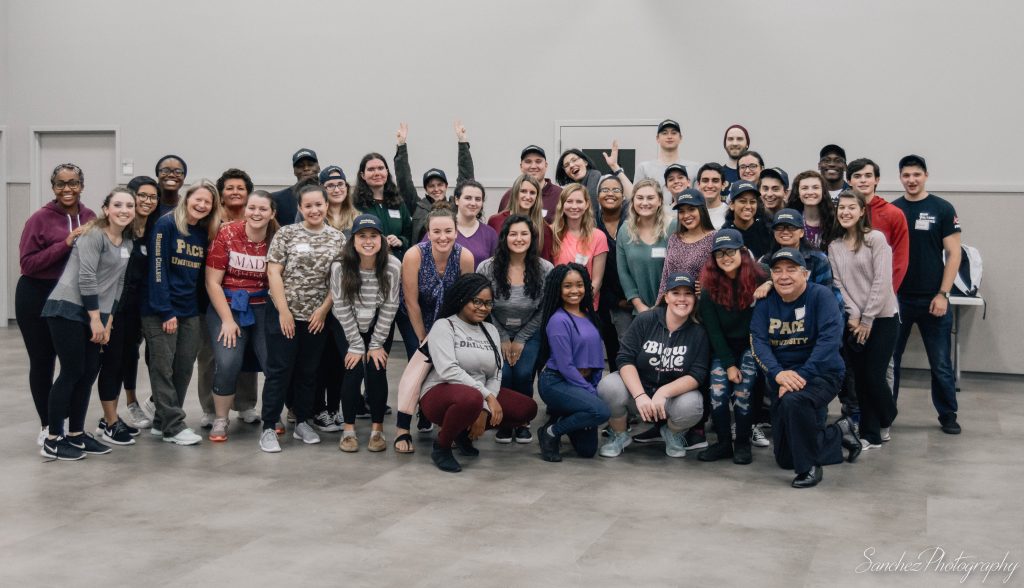Sabrina Sanchez
You arrive at Pace for Summer Orientation to find a room full of strangers. You realize, as you learn their names, that they will not be strangers forever; they will become your peers for most of the next four years in the Honors College. You play ice breakers, get access to the Honors Lounge, and are encouraged to chat over ice cream at the Ice Cream Social in the beginning of the semester.
From that point forward, at least in the fall semester of your freshman year, you’ll get to see these people in almost every class. But who are they, really? How do you get to know them? How do you become friends?
This past fall, the Honors College hosted its first Honors Leadership Retreat in an attempt to help honors students answer those questions. Inclusive to Honors Students of any year, the Honors faculty and staff prepared an itinerary full of warm-ups and activities for the night to help students learn each other’s names and perhaps learn something new about their peers.
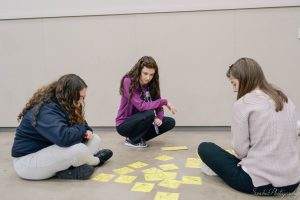 Some of the activities included building a puzzle blindfolded, solving picture riddles, and a game where students tossed several unwieldy items to each other in a sequence, to name a few. The purpose of these activities? To encourage teamwork and trust in one another so that Honors Students of any year would be comfortable in approaching or bonding with one another.
Some of the activities included building a puzzle blindfolded, solving picture riddles, and a game where students tossed several unwieldy items to each other in a sequence, to name a few. The purpose of these activities? To encourage teamwork and trust in one another so that Honors Students of any year would be comfortable in approaching or bonding with one another.
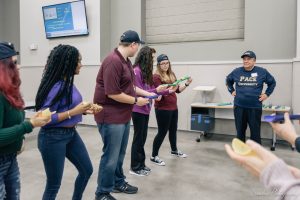 By the end of the night, many laughs were shared and everyone was tired. But how effective really was this first-annual retreat? While many students shared they had an enjoyable and interesting evening, based on a survey conducted by Pace Scholastica, some concurred there was something lacking. That marking moment to solidify the bond was missing.
By the end of the night, many laughs were shared and everyone was tired. But how effective really was this first-annual retreat? While many students shared they had an enjoyable and interesting evening, based on a survey conducted by Pace Scholastica, some concurred there was something lacking. That marking moment to solidify the bond was missing.
Based on the survey, when asked to rate the retreat on a scale of 1 to 5 (1 being great and 5 unsatisfactory), a majority of respondents deemed the retreat quite successful, 28.6% of respondents rating it a 1 and 35.7% rating it a 2. However, the other 35.7% of respondents fell between 3 and 4. While no one rated the event a 5, still, the data suggests room for improvement.
On another survey question, when asked whether or not they would change anything, while 57.1% of respondents answered “no,” the remaining 42.9% answered “yes.”
The question arises, how can the retreat be improved to create deeper interpersonal bonds? After all, 92.9% of students that attended and took the survey expressed they would participate in another retreat.
When asked to provide suggestions, some students offered that simply having a more diverse range of activities or making the existing ones more interactive or more “fun” would improve the experience. Others had more complex suggestions, including converting the Honors Retreat into a weekend-long away-retreat with activities planned for all students of all years, including “s’mores at a campfire” or “hiking” and “escape rooms” as well as “high ropes/obstacle courses,” “restaurant lunch/dinner,” or fun “team building” games.
In general, while some of the participating students seemed pleased, others acknowledged room for improvement. After all, the Honors College is meant to be their cohort for their time at Pace. Perhaps in the coming years these suggestions can be implemented to strengthen the bond between Honors students through the Honors retreat, creating, in the end, a family.

